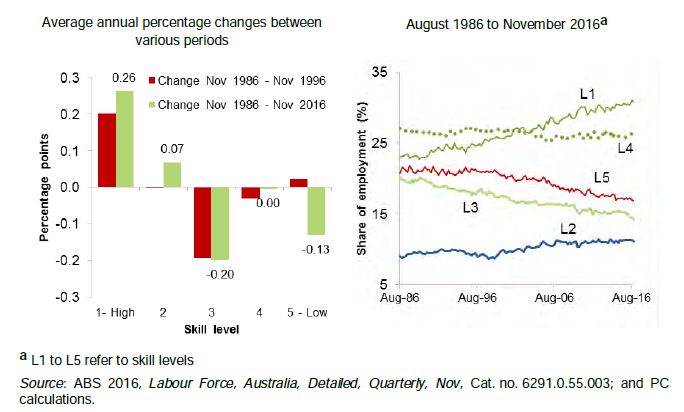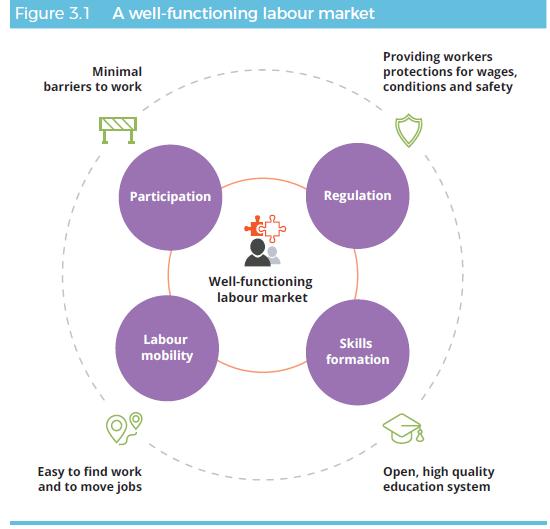Downloads
Jobs are not only our primary source of income, but also provide an opportunity for social interaction and are an important source of self-esteem.
How can we adapt and promote Australia’s labour markets in response to change? How can we ensure all Australians have the skills they need to continue to drive improvements in our living standards?
A shift in how we approach education
New technologies and changing consumer preferences are driving the demand for new skills and reducing the need for others.
Automation, an ageing population, deferred retirement and continued growth in the services sector will mean that the skills demanded will change significantly in the coming decades.
The need to adapt to change is nothing new and Australia has benefited from new technologies through higher wages and more fulfilling employment.
But how can we ensure our workforce has the skills they will need to meet changing labour demands and fill future jobs?
Prioritise student outcomes
An effective school education system is critical for people to gain foundational skills. Strong foundational skills for students are important to give students the capacity to acquire specialist knowledge throughout different and changing job roles in the future.
How can educational outcomes for children and adults be improved across all educational sectors to provide better job security, income and job satisfaction?
To ensure that our school system is providing Australians with the strong foundational skills they need, the PC recommends boosting salaries in subject areas where there are teacher shortages, to attract high calibre people and stopping teachers from teaching out of field.
Our support for programs including Teach for Australia is helping fast track graduates from fields outside of teaching such as science and mathematics into disadvantaged schools which often experience difficulties attracting high-quality teachers with the subject-matter expertise they need — such as STEM and foreign languages.
Our recently legislated schools package overhauls the way funding is distributed to ensure students that need the most support get the most funding and it will see an extra $23.4 billion invested in schools over the next decade. Those changes are supported by the Review to Achieve Educational Excellence in Australian Schools, which will provide advice on how schools can best allocate these additional resources to achieve better results.
The PC examines potential improvements to the VET sector so we have more work-ready employees.
The Skilling Australians Fund announced in the 2017-18 Budget will provide up to $1.5 billion that will be matched with funding from the States to support up to 300,000 apprenticeships and traineeships.
The Government’s commitment to the National Career Education Strategy will also help prepare students for life beyond school, with the skills needed for jobs in the future.
The PC argues that universities are too focussed on research and that there appears to be insufficient incentives to improve teaching standards, or data to measure the teaching strength of universities.
It suggests that one way to realign the incentives would be to give university’s some ‘skin in the game’ - funding that is linked to the success of their students, not their research findings.
The Government addressed this in the 2017-18 Budget, announcing plans to allocate 7.5 per cent of funding to universities on a performance basis such as student retention, satisfaction and employment outcomes.

